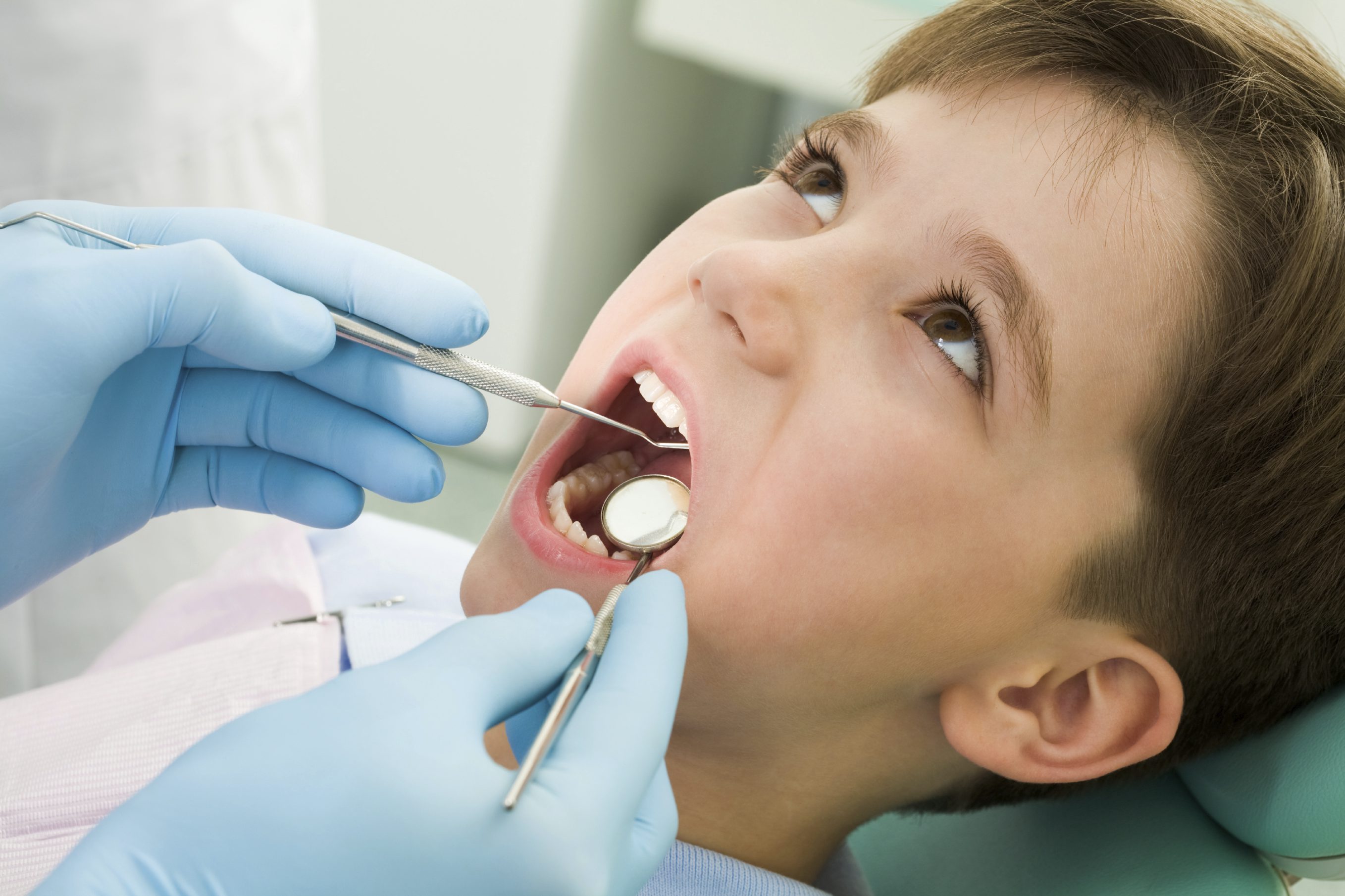Kids dentistry
WHY IS PEDIATRIC DENTISTRY IMPORTANT?
Humans start teething when they are as young as 6 months old and develop their set of primary ‘milk’ teeth.
At the age of 6-7 years, humans start losing their milk teeth and the permanent set of teeth start emerging. Because the milk teeth will eventually fall off, some parents tend to ignore taking their child to a dentist.

TREATMENT OPTIONS FOR KIDS
Root Canal Treatment In Milk Teeth
If you think your child is too young to need root canal treatment, think again — there is no age limit for this treatment. If his/her primary (baby) teeth have been injured, or if decay has advanced deep into the roots of your child’s teeth, a root canal treatment to stabilize teeth may be needed.
Oral Habits In Children
Frequently children acquire certain habits that may either temporarily or permanently be harmful to teeth and tooth supporting structures. These habits are acquired as a result of repetition. In the initial stages, there is a conscious effort to perform the act. Later the act becomes less conscious and if repeated often enough may enter the realms of unconsciousness. Some common oral habits seen in children include thumb sucking, mouth breathing, tongue thrusting, lip biting, grinding of teeth and nail-biting.
Certain reminding appliances called habit breaking appliances assist the child who is willing to quit the habit but is not able to do so.
PREVENTION TREATMENTS FOR KIDS:
Fluoride Application
A common problem for which parents usually take their children to the dentist is decay. This is because there is a lack of proper dexterity of brushing in children. To avoid the problem of decay, parents should get the Fluoride application treatment in children at regular intervals. Fluoride helps to fight plaque and bacteria which can cause enamel loss which further causes cavities. Fluoride also strengthens the tooth structure & helps in bone growth. Under this treatment, the dentist incorporates fluoride ions into the tooth structure making them more prone to acid dissolution. This treatment is equally useful for both milk & permanent teeth.
Sealants
The main reason for decay is the food and bacteria that is trapped in the pits & fissures of teeth. We chew food from the back teeth like molars and premolars which are never flat. The pits & fissures as discussed above are the depressions on these back teeth. They function as potential traps for bacteria & food and make it susceptible to decay. Therefore, as a preventive measure, certain pits and fissure sealants are placed.
Dental sealants then come to the rescue. Sealants are fillings placed on the chewing surface of the permanent tooth. They protect the tooth from decay.
Toothpaste And Toothbrush
Apart from the aforementioned treatment options, make sure that your kids brush twice daily. Brushing before sleeping is extremely important because the food you eat during the day get stuck between your teeth and bacteria in your mouth will feed on that food overnight causing decay. If possible teach your child how to floss as it is the added protection for your teeth
FREQUENTLY ASKED QUESTIONS
Q.1. What Is The Minimum Age Of Visiting A Kid’s Dentist?
One should take their child to the dentist as soon as the first tooth erupts or when your child turns 1.
Q.2. How Long Should A Child Visit A Pediatric Dentist?
The age ranges from 0-18 years. The time till he/she turns into an adult.
Q.3. When Should A Child Start Brushing?
As soon as the first tooth erupts but make sure that the amount of toothpaste is not more than a grain of rice.
Q.4. Should Mothers Clean The Mouth Of Babies If There Are No Teeth?
Yes, it is important to keep the mouth clean. Clean the upper and lower gums with a soft cloth.
Q.5. Is It Normal For Babies To Have A White Tongue?
Most of the babies have a white coating on the tongue in the early weeks and is very normal.
Q.6. What Is The Importance Of Milk Teeth?
As milk teeth erupt, it is a common misconception that they do not matter. But they have important roles such as:
- They are essential in the first step of digesting food: chewing, biting and grinding
- They improve speech habits and pronunciation
- It is the basis for the development of jaw bones and muscles
- They create room for permanent teeth to erupt
